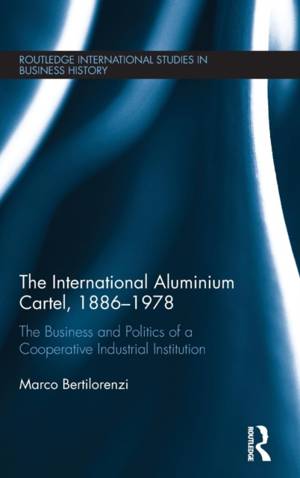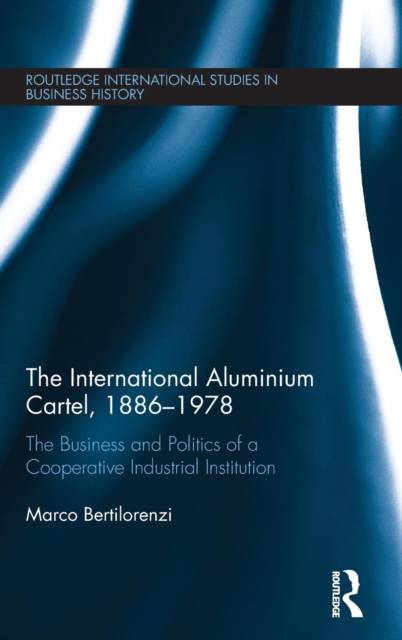
- Afhalen na 1 uur in een winkel met voorraad
- Gratis thuislevering in België vanaf € 30
- Ruim aanbod met 7 miljoen producten
- Afhalen na 1 uur in een winkel met voorraad
- Gratis thuislevering in België vanaf € 30
- Ruim aanbod met 7 miljoen producten
The International Aluminium Cartel, 1886-1978
The Business and Politics of a Cooperative Industrial Institution
Marco BertilorenziOmschrijving
Aluminium was one of most cartelised industries in the international economic panorama of the 20th century. Born following the discovery of electrolytic smelting process in 1886, this industry, even in its infancy, established a cartel which characterised its history until nearly 1980. Managers of the aluminium industry from various historical eras and countries shared the same vision about the development of their industry: to keep prices as stable as possible in order to encourage expansions and to provide return on investments. Price instability, which characterised the trade of other commodities, was unknown to the aluminium industry.
This book neither argues that cartels are fundamentally evil, nor attempts to demonstrate that cartels are optimal business organisations. It instead provides an in-depth and frank analysis of the internal working of industrial organisations and of the interplay between cartels and political powers and institutions. The International Aluminium Cartel offers explanations for the construction and collapse of cartels, descriptions of their operations, and an historical interpretation of their experiences.
Incorporating information gleaned from a unique collection of private and public archives from several countries, this unique study will appeal to a wide variety of readers, including academics interested in industrial and business history.
Specificaties
Betrokkenen
- Auteur(s):
- Uitgeverij:
Inhoud
- Aantal bladzijden:
- 390
- Taal:
- Engels
- Reeks:
Eigenschappen
- Productcode (EAN):
- 9780415742542
- Verschijningsdatum:
- 6/10/2015
- Uitvoering:
- Hardcover
- Formaat:
- Genaaid
- Afmetingen:
- 150 mm x 231 mm
- Gewicht:
- 725 g

Alleen bij Standaard Boekhandel
Beoordelingen
We publiceren alleen reviews die voldoen aan de voorwaarden voor reviews. Bekijk onze voorwaarden voor reviews.











